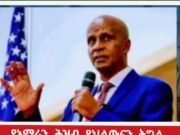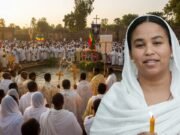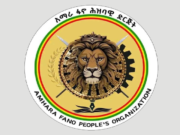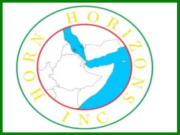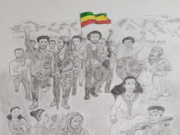Dr Workneh Gebeyehu
Minister of Foreign Affairs
P.O. Box 393
Addis Ababa
Ethiopia
Re: Human Rights Watch Reporting on Ethiopia
Dear Minister,
Human Rights Watch notes the October 22, 2016 blog post of Dr. Tedros Adhanom, then minister of foreign affairs, on the Ministry’s website about our recent presentation to the European Parliament’s subcommittee on human rights and committee on development and concerns for our research into security force abuses.
Human Rights Watch’s research and recommendations are grounded in international human rights law, including regional human rights treaties. This applies to our research on Ethiopia and the other 90 countries where we work globally. As with all countries, we welcome engaging with Ethiopian government officials regarding our research and recommendations prior to and after we publish findings. Before any major report on Ethiopia is published, we provide a summary of our findings to the government for comment and seek to meet to discuss our findings and recommendations. Our letters and responses received are included in the report or on our website. To date there has rarely been a direct response from the Ethiopian government to our communications.
Because we have not received a response to our research queries or requests for meetings, we cannot exchange information that may illuminate our conclusions, or explain to government officials how we reached our conclusions.
We go to great lengths to corroborate victim accounts and other research findings. As a general practice we make corrections to our reporting when clear and corroborated information contravening our findings comes to light. For your information, our corrections page is at: https://www.hrw.org/corrections.
In most of the contexts in which Human Rights Watch works, we do not make our sources public or reveal identifying details, because those interviewed have genuine fear of reprisals or other security concerns. The safety of those we interview is a primary consideration in everything we do.
In Ethiopia, the government’s harassment and arbitrary detention of individuals providing information to civil society has effectively been codified in the state of emergency directive, underscoring the need for those sources to remain confidential. Detention of individuals providing information to journalists, both domestic and international, has also been previously documented by Human Rights Watch and others.
The decreasing space available for independent voices to express a range of views and to have those voices be heard by the government has contributed to the current human rights crisis in Ethiopia. Recent statements directed toward international organizations who conduct independent, corroborated research is illustrative of this growing intolerance for divergent opinions and perspectives. Nevertheless, Human Rights Watch will continue to encourage the government’s feedback on the substance of our research.
Need for an independent investigation
Recent calls for an international investigation reflect the gravity of human rights violations that we and others have documented, but also the lack of a credible, transparent, and impartial national investigation into the abuses that have occurred since November 2015. The June 2016 Human Rights Commission oral report to parliament that largely exonerated the state security forces did not meet basic international standards. No one, including several parliamentarians who have spoken to Human Rights Watch, has seen a written version of the report, which reaches conclusions very different from those of all other organizations who have documented abuses. If a written version of this report exists we urge you to publicly release it. We remain concerned that an impartial international investigation is needed and those implicated in serious abuses be held to account. We have called for such investigations in other contexts, most recently Burundi, South Sudan, and Eritrea – some of which your government was quick to support. The thousands of victims of human rights violations deserve justice and accountability.
The inquiry board set up by parliament to monitor abuses under the state of emergency provides another opportunity to demonstrate impartiality. While the lack of opposition voices on that board raises concerns, it still presents an opportunity to willfully monitor abuses and show that those responsible for serious abuses will be held to account.
We reiterate our desire to meet with representatives of the government in Ethiopia or elsewhere to discuss our research findings, and welcome specific information on your efforts to meaningfully investigate allegations of abuses, hold perpetrators to account, and provide redress for victims.
Sincerely,
Lotte Leicht
EU Director
Human Rights Watch


